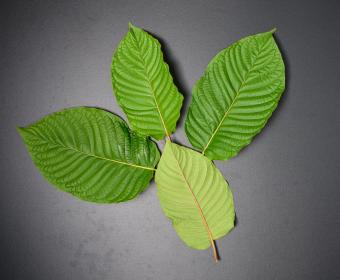
The American Association of Addiction Medicine defines addiction as "a primary, chronic disease of brain reward, motivation, memory and related circuitry." It does not limit this definition to the more common activities of using drugs or alcohol, gambling or shopping. In fact, many people are addicted to things that some may consider strange. Just like with more mainstream addictions, these individuals get a "high" or rush from engaging in their addicting activities.
Exercise
Exercise has many benefits when done in moderation, but when it becomes an addiction the drawbacks can outweigh these benefits. This can happen if a person gets so addicted to the dopamine rush that happens when they exercise that they start to sacrifice other parts of their life, such as their job or personal relationships, so that they can put in more workout time.
Addicts will also continue to exercise when it is detrimental to their physical health, such as when their muscles are overstressed, when they're injured or when they are ill. According to psychologist Sharon Stoliaroff, Ph.D., those with perfectionist personality traits are more at risk for this addiction. They feel that if they train constantly, they will achieve peak performance, though in reality even Olympic athletes take rest days.
Tanning
According to the Skin Cancer Foundation, the UV light from the sun can heighten endorphin release, actually increasing a person's mood. Spending time in a UV tanning bed will do the same thing. Frequent tanning, which is popular among adolescents, can have serious health consequences, including the risk of melanoma and other skin cancers. Frequent outdoor exposure without the use of sunscreen can also cause the same problems.
Cosmetic Surgery
Have you ever read about celebrities that have dozens of plastic surgeries only to look worse than before they started? It's possible that these people may actually have an addiction. According to Medical News Today, this disorder comes from a focus on perfection and body image gone awry.
While many people opt for surgery to "fix" one or two things, for individuals addicted to cosmetic procedures, no amount of surgeries will be enough for them to feel satisfied with their appearance. Often, they suffer from body dysmorphic disorder, which can be a precursor to the addiction.
Ice Chewing
Not only can ice chewing be annoying and bad for your teeth, it can also be a sign of an addiction. According to the New York Times, people with what is called pagophagia can go through many bags of ice or ice cube trays in a single day.
Often, people develop pagophagia due to iron deficient anemia. The ice helps to curtail inflammation in the mouth, so many chew it without knowing why only to have the cravings stop when they start taking iron pills. Some also just like chewing ice as a way to relieve anxiety and tension.
Hair Pulling
While it is not technically classified as an addiction, people with trichotillomania have the uncontrollable urge to pull hairs from their heads, whether it be their eyelashes, eyebrows or scalp hairs, to the point where they have bare patches. Some will also chew or eat the hair.
According to WebMD, the reason behind this disorder is that the person uses hair pulling as a means of stress relief. People with this disorder often have problems with impulse control, anxiety and/or depression.
Workaholism
Many people brag that they are dedicated to their jobs, but putting in 80 hours a week at the office can actually be the sign of an addiction. According to Psychology Today, 1,000 deaths a year in Japan are attributed to workaholism.
Workaholics become addicted to the stress that comes with the rush mentality many people have when they are at work. It's also been observed that people who are addicted to their jobs can actually become ill when they are on vacation because their bodies have so much trouble attempting to relax.
Pica
Pica is another disorder that takes on similar characteristics to an addiction. People with pica - often children who have nutrient deficiencies - feel compelled to eat items that are not considered foods such as metal, dirt, glue or buttons. Older individuals with pica often have some sort of developmental disorder, like autism spectrum disorder. According to The Nemours Foundation, pica can lead to lead poisoning and other serious health issues.
Social Networking
While chronically checking your Facebook and Twitter accounts is not yet recognized as an official disorder, most everyone knows someone who gets very uncomfortable when they have an inability to access their smartphone. Evgeny Krupitsky, a chief drug therapist in Leningrad, puts social networking addiction right up there with alcohol and drug addiction, asserting that the only difference is that chronic Instagramming is of a "non-chemical nature."
Not a Laughing Matter
If you or someone you know has one of these addictions, it is not the time to laugh or spread gossip. Feeling ashamed of their disorder can result in individuals hiding their problem and not getting the help they need. People with any of the above disorders need just as much empathy and support in recovery as anyone with a more common addiction.







